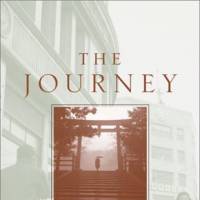"The Journey" is a morality tale set in Japan just after the American Occupation in which American social influences — materialism and goal-oriented pursuits — are depicted as causing an abandonment of traditional Japanese values.
The Journey, by Jiro Osaragi, Translated by Ivan Morris.
342 pages
TUTTLE PUBLISHING, Fiction.
The heroine, Taeko, is a young woman exemplifying certain traditional values while adapting to postwar Japan. She struggles financially, yet is happy with a simple life. She loves Ryosuke, a rakish spendthrift involved in vaguely shady business dealings with the Americans. The novel's dispenser of moral certitude is Professor Segi, who insists that life's journey, rather than the American obsession with objective goals, is the key to happiness.
Americans serve as background pieces cut from the same cloth, with not a single line of dialogue. Besides this overly simplistic depiction, it is historically dubious to present materialism and objective pursuits as peculiarly "un-Japanese" until Americans imposed them after the war.
Yet one must consider the milieu in which Osaragi wrote. A swipe at the alleged cultural inferiority of one's recent occupiers was perhaps soothing, and none would suggest that the occupation was a Utopia. The tenability — or lack thereof — of Osaragi's cultural and historical assertions is less important than the cathartic function "The Journey" arguably served for the author and his readers. It is an intriguing literary and psychological depiction of a society coming to grips with the aftermath of defeat and occupation.

















With your current subscription plan you can comment on stories. However, before writing your first comment, please create a display name in the Profile section of your subscriber account page.